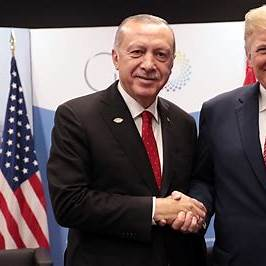Geneva, Switzerland – [Date]
The latest round of UN-facilitated 5+1 talks on Cyprus concluded in Geneva with a significant shift in focus, as Turkish Cypriot leaders firmly rejected the federation model and advocated for a two-state solution based on mutual recognition and cooperation. This marks a pivotal moment in the decades-long Cyprus dispute, with implications for regional stability and international diplomacy.
A Shift Toward a Two-State Framework
Turkish Cypriot representatives emphasized that any future solution must respect their sovereign rights and legal status. “We must look forward, not backward. The federation model is no longer an option,” stated the Turkish Cypriot delegation. Their stance aligns with Türkiye’s position, which supports the international recognition of the Turkish Republic of Northern Cyprus (TRNC) and promotes a cooperative relationship between the two states on the island.
The Turkish Cypriot side expressed readiness to support initiatives fostering collaboration between the two states, signaling a clear departure from previous federation-focused negotiations.
Türkiye’s Unwavering Support
Turkish Foreign Minister Hakan Fidan played a crucial role in reinforcing the Turkish Cypriot position. Fidan reiterated Ankara’s steadfast support, emphasizing that a sustainable and fair solution can only be achieved through mutual recognition rather than forced unification. “Türkiye will continue to stand by Turkish Cypriots in their pursuit of justice and equality,” Fidan declared, underscoring Ankara’s diplomatic and strategic resolve.
Global Reactions and Implications
Greek Cypriot Administration and the EU
The Greek Cypriot administration, backed by the European Union, continues to advocate for a bicommunal, bizonal federation as the framework for reunification. They argue that any deviation from this model undermines longstanding UN efforts.
United Nations and International Community
While the UN facilitated the talks, it has not officially endorsed a two-state solution. UN Secretary-General António Guterres reaffirmed the need for dialogue but expressed concerns over the widening gap between the parties.
Regional and Geopolitical Impact
Analysts suggest that the shift toward a two-state policy could reshape geopolitical dynamics in the Eastern Mediterranean, potentially affecting energy cooperation, maritime disputes, and regional security. As Türkiye and the TRNC push for sovereign recognition, Western powers remain cautious, wary of setting a precedent for other contested regions.
Looking Ahead
With the federation model firmly rejected by Turkish Cypriot officials, future negotiations are likely to focus on de facto state relations rather than reunification. The international community faces a critical choice: adapt to this new framework or risk further entrenching the island’s division.
The Geneva summit has, for now, reaffirmed Cyprus’s divided status as a political reality. Turkish Cypriots and Türkiye insist that any future solution must recognize this reality, setting the stage for a new chapter in the island’s complex history.
Quote of the Day
“The federation chapter is closed. It’s time for a new approach based on mutual respect and cooperation.”
— Turkish Cypriot Delegation
Edited for clarity and global context; includes insights from Reuters and AP.
This report provides a comprehensive analysis of the Geneva talks, highlighting the shifting dynamics and their broader implications for Cyprus and the region.



















